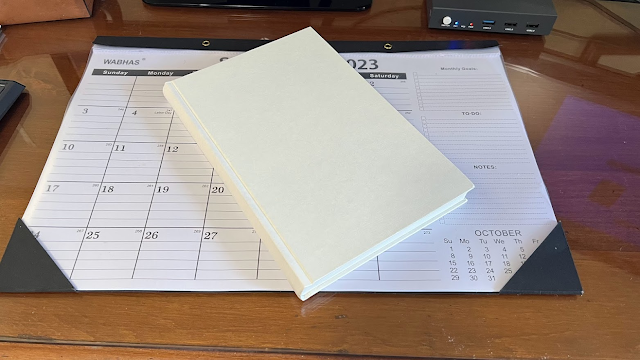"Great stories happen to those who can tell them."
That quote is from Ira Glass of National Public Radio, and I’ve taken those words to heart — even including them in my one-page career profile. (This storyteller, btw, is happy to talk to you about a consultative engagement.)
I love telling stories and have accumulated many over a career spanning decades in business, working with start-ups, private equity companies, turnarounds, and well established industry leaders — many of them caught up in the throes of business transformation. Here's an example of a story I've carried with me for many years.
I’ve worked for a few European headquartered companies, and perhaps more than my share of European colleagues (every one of them has been awesome).
I once worked for a European headquartered company that was involved with a major ecosystem player. We participated in its annual, signature Big Event which boasted over 20,000 attendees.
The company’s founder was a celebrated figure within certain professional circles who held an advisory role with a European government. He had published textbooks, received academic honors and degrees, had recently published his autobiography in his native language. And so, my story begins.
I was summoned to my president's office. “Gary,” I was told (Gary was not our founder's real name, but that’s what I’ll call him) “will be a keynote speaker at the Big Event a couple of weeks from now. We are having his autobiography translated into English and he’ll want a copy to hold up before the audience during his talk. I want you to make sure it gets done.”
Those peremptory sentences were to make my life hell for the next several days. I’m not an expert in the publishing industry, but I instantly sensed that I was in trouble.
“I’m not sure that’s possible, but I’ll investigate. Can you put me in touch with the publisher and translator?”
Gary, I was told with heavy emphasis, must have his book in English for the Big Event.
I contacted the publisher and translator and quickly confirmed my suspicions. The goal I had been given was not achievable. The translator had only just begun working on the translation that day from a copy of the founder’s untranslated book. The publisher sounded professional and was sympathetic about my hopeless mission. And they were concerned because Gary was a respected figure and one of their authors. But their answer was clear: it was not going to happen.
I received a copy of Gary's book in his native language and gave it a quick inspection. A simple solution immediately presented itself. I checked on the details with the publisher and sought out the president.
“We can print an English language dust jacket,” I told him, “and slip it over an untranslated book. No one will notice, and the translated book will begin to follow in just a few more days.”
“No. His book must be translated. He will hold it open so people can see the pages.” The reply was given immediately, without a moment’s consideration. There was more discussion after that, but I couldn't talk him down.

A sidebar.
There are two statements I’ve always wanted to make in the business world, but I've never had the opportunity to say either of them.
“Make it happen!” with a power hand wave.
“Give us the room” with a hard stare.
“Make it happen” was actually used on me once, very early in my career, by a boss who’d just given me and a colleague a completely hopeless and largely useless task (much like the one I was faced with in this story).
As to “give us the room,” I've never been on the receiving end, but I wonder: how does everyone know whether they’re to stay or leave?

I’ll spare you the details of the next week or two: the daily anxiety of phone calls with the publisher in Europe and translator in the U.S., the tedious review and editing of the English language manuscript as it began to appear in my inbox, and the continuous demand for progress reports from my company’s president who knew full well I had no significant progress to report.
Sometimes you open a door and the postman arrives with a million dollar check. Sometimes you open it and see a rocket-propelled missile headed straight for you. Either way, you stand with the door open and wait for it to reach you. Not much else you can do.
I knew the project would fail. I’d been through every step of the production process with the publisher, I had confidence in their estimates of what that process could deliver, and understood exactly what would happen and when. I knew I had a good solution to the problem, too, but that solution had been rejected.
Time passed. The Big Event began. Mercifully, I did not attend. Travel expenses were tight, and I was considered nonessential (unlike the translation firm with its substantial upcharge for expedited work on the manuscript, plus whatever extra we paid to the publisher).
Before he left for the Big Event, I handed a neatly-wrapped, slim white volume to my company president for Gary’s keynote. It is pictured below.

The book also has a dust cover, printed in English, but I removed it for this photo.
Aside from the dust cover, there isn’t a single thing printed in this dummy volume — which the publisher had thoughtfully prepared for me as a sort of consolation prize — although the page count precisely mirrors that of the native language edition.
The image above conjures all sorts of metaphors about setting impossible goals. It can lead to a life lesson about hollow results from hollow demands. And probably others besides.
To me, it was once a symbol of failure.
Today, I regard it with a certain joy because it’s a great story and I get to tell it. To all who made it possible, thank you.

No comments:
Post a Comment